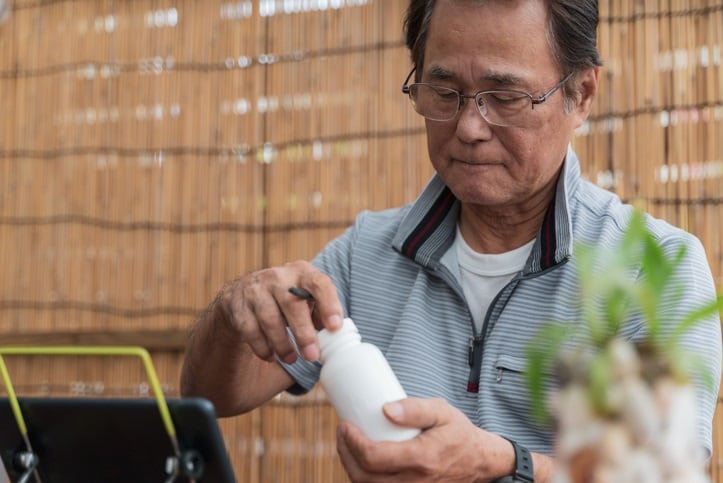Writing Nutrients, a group of researchers from Taipei Medical University and New York University Langone Medical Center found that this method could accelerate normal walk speed recovery by about three months as compared to undergoing resistance training alone.
A total of 108 older adults aged 60 and above took part in the clinical trial. All of them demonstrated a walking speed of less than 1.0 m/s at baseline, indicating that they had low physical ability at the beginning of the study.
They were randomised to either taking the protein supplementation and resistance exercise training or resistance exercise training alone or usual care for 12 weeks.
The protein supplement used in the study was from Affix Health Pte. Ltd., Singapore, Taiwan Branch. It comes in a powder form and is dissolved in water before consumption.
Each serving contained 14 g of protein – which consists of 7.0 g of whey, 4.2 g of casein, and 2.8 g of soy protein – and 7.3 g of amino acids, of which 2.2 g is made up of leucine.
A dosage of 1.5 g/kg/day was chosen because it is an approximate amount for older adults who are undergoing resistance exercise training, the researchers pointed out.
All participants in the protein supplementation and resistance exercise training group were instructed to consume two servings of protein – one at breakfast and one within one hour after the exercise – on each training day during the intervention period.
Findings showed that participants taking protein supplementation with resistance exercise recovered to normal walking speed by 11 weeks earlier than those who took resistance exercise alone.
In addition, among those who received the supplement and training, 38.9 per cent exhibited successful walking speed recovery until the end of the intervention.
Another 30.6 per cent of them experienced normal walking speed during the six weeks after the intervention ended. Thereafter, no participant achieved normal walking speed.
Whereas in the group undergoing resistance training alone, a lower percentage of participants at 13.9 per cent achieved normal walking speed during 12-week training period.
Another 41.7 per cent of them achieved normal walking speed during the 16 weeks after the training ended. Thereafter, no patient achieved normal walking speed.
“In regard to the walking speed recovery pattern, our results revealed that the trajectory of walking speed recovery reached a peak during 6–16 weeks after the intervention, indicating a short- to moderate-term effect,” the researchers said.
“For patients with knee osteoarthritis who suffer sarcopenia, 12-week resistance exercise training alone exerts significant effects on walking speed recovery.
“Additional protein supplementation further augments the treatment effects of resistance exercise training by speeding up the recovery time of walking speed toward a level ≥ 1.0 m/s, which facilitates the patients to diminish the disease severity or even free from sarcopenia,” they further explained.
This study was funded by grants from Taipei Medical University-Shuang Ho Hospital.
Greater improvement
The group taking both protein supplement and resistance training also had a faster improvement in walking speed during the 12-week intervention.
As compared to participants receiving usual care alone, their walking speed was 0.18m/s faster, which was also a statistically significant difference.
“After the 3-month intervention, patients in the protein supplement and resistance exercise training group walked by an adjusted mean WS of 0.96 m/s faster than their peers who received usual care did at an adjusted mean walking speed of 0.78 m/s.”
Similar results were observed in group doing resistance training alone, as their walking speed was 0.08m/s faster than those receiving usual care alone.
Source: Nutrients
Effects of Protein Supplementation Combined with Resistance Exercise Training on Walking Speed Recovery in Older Adults with Knee Osteoarthritis and Sarcopenia
https://doi.org/10.3390/nu15071552
Authors: Liao et al.





